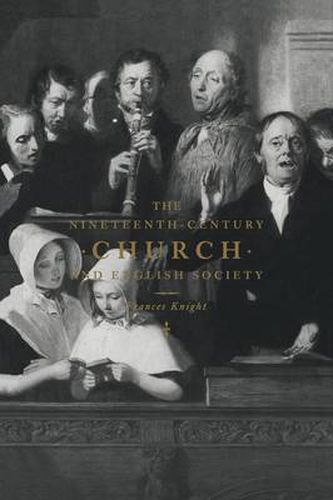Readings Newsletter
Become a Readings Member to make your shopping experience even easier.
Sign in or sign up for free!
You’re not far away from qualifying for FREE standard shipping within Australia
You’ve qualified for FREE standard shipping within Australia
The cart is loading…






This is the first study to consider the meaning of Anglicanism for ordinary people in nineteenth-century England. Drawing extensively on unpublished sources, particularly those for rural areas, Frances Knight analyses the beliefs and practices of lay Anglicans and of the clergy who ministered to them. Building on arguments that the Church of England was in transition from state church to denomination, she argues that strong continuities with the past nevertheless remained. Through an examination of denominational identity, personal piety, Sunday church-going, and Anglican rites of passage she shows that the Church continued to cater for the beliefs and values of many Christians. Far from becoming a minority sect, the Anglican Church in the mid-Victorian period continued to claim the allegiance of one in four English people.
$9.00 standard shipping within Australia
FREE standard shipping within Australia for orders over $100.00
Express & International shipping calculated at checkout
This is the first study to consider the meaning of Anglicanism for ordinary people in nineteenth-century England. Drawing extensively on unpublished sources, particularly those for rural areas, Frances Knight analyses the beliefs and practices of lay Anglicans and of the clergy who ministered to them. Building on arguments that the Church of England was in transition from state church to denomination, she argues that strong continuities with the past nevertheless remained. Through an examination of denominational identity, personal piety, Sunday church-going, and Anglican rites of passage she shows that the Church continued to cater for the beliefs and values of many Christians. Far from becoming a minority sect, the Anglican Church in the mid-Victorian period continued to claim the allegiance of one in four English people.